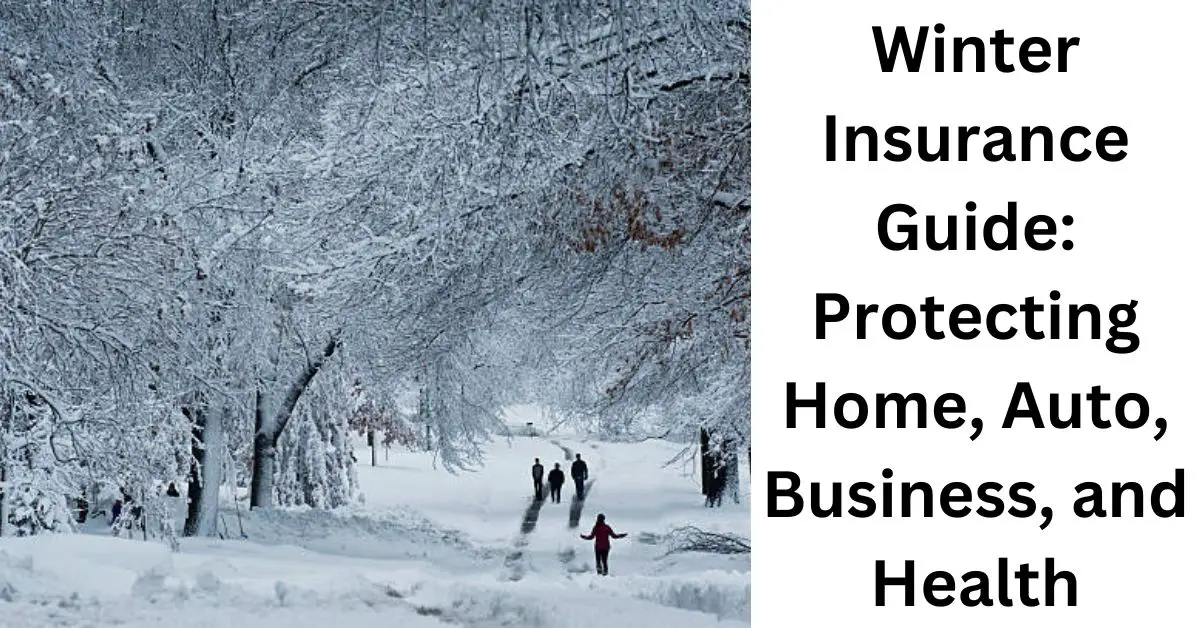Introduction:
As the winter season sets in, the importance of insurance becomes paramount for safeguarding your home, automobile, business, and health. This comprehensive guide explores the various facets of winter insurance, offering insights into common claims, preventative measures, and strategies to save costs. Discover why reviewing your policies is crucial and how a proactive approach can mitigate risks during the colder months.
Winter Home Insurance
Understanding Common Winter Home Insurance Claims
In winter, homeowners often face increased insurance claims. Learn about the most prevalent types, such as frozen pipes, falling trees, house fires, wind damage, hail, robbery, damage from the weight of snow, floods, ice dams, and slip-and-fall accidents. Discover practical tips to prevent these issues and protect your home.
Winter Auto Insurance
Navigating Winter Roads: Common Auto Insurance Claims
Winter driving presents unique challenges, leading to common auto insurance claims like collisions, sliding on ice, fallen trees, fallen branches, potholes, collisions at intersections, and night blindness. Uncover the importance of collision coverage and explore tips for winter car insurance, including the use of studded tires and understanding the concept of “winter car insurance.”
Tips for Saving on Auto Insurance Costs in Winter
Learn cost-effective strategies to enhance safety on snowy and icy roads. From increasing insurance coverages to investing in roadside assistance and getting the right tires, this section provides a comprehensive checklist for preventing weather-related accidents and breakdowns.
Winter Business Insurance
Protecting Your Business: Common Winter Business Insurance Claims
Businesses also face specific challenges in winter. Explore common claims related to fire, customer injuries, thefts, storms, burst pipes, flood insurance, wind damage, product liability, and reputational damage. Learn how a well-rounded business insurance policy can safeguard your enterprise.
Winter Health Insurance
Prioritizing Wellness: Common Winter Health Costs and Prevention Tips
Health insurance is essential during the winter, covering costs related to colds, flu, pneumonia, COVID-19, sore throat, strep throat, asthma attacks, frostbite, seasonal depression, and heart attacks. Delve into preventive measures, vaccination coverage, and tips for saving on health costs during the colder months.
Tips for Saving on Health Costs in Winter
Discover practical ways to manage health costs during winter, including utilizing telehealth services, understanding insurance coverage for various health issues, and staying proactive with preventive measures.
Winter Insurance Guide FAQs
Answering Your Winter Insurance Queries
Addressing common questions, this section clarifies whether car insurance can be paused in winter, if renters insurance covers winter-related damage, and how health insurance handles injuries caused by slips and falls in icy conditions. Stay informed about COVID-19 coverage, and learn why maintaining continuous coverage is crucial.
Conclusion:
As winter unfolds, empower yourself with knowledge about insurance, preventive measures, and cost-saving strategies. This comprehensive guide equips you to navigate the challenges of the season, ensuring that you are well-protected across your home, auto, business, and health. Stay secure, stay informed, and embrace the winter season with confidence.
Frequently Asked Questions (FAQs):
Can I pause my car insurance during winter?
No, you cannot pause car insurance coverage. If you stop making payments, your insurance will become invalid due to non-payment, and reinstating coverage may result in higher costs.
Does renters insurance cover damage caused by winter weather?
Yes, renters insurance typically covers personal property damaged by winter weather, such as burst pipes damaging belongings like rugs, clothes, and electronics.
How does health insurance cover injuries from slips and falls in icy conditions?
Injuries resulting from slips and falls are generally covered by health insurance. If the injury occurs on someone else’s property, like a driveway, their home or renters insurance may cover medical bills, but it won’t cover medical bills for household members.
Are COVID-19 tests and treatments covered by health insurance?
Yes, health insurance covers COVID-19 prevention in the form of vaccines and testing, as well as medically necessary treatments if you get sick. Out-of-pocket costs depend on your specific coverage.
What are the most common winter home insurance claims?
Common winter home insurance claims include damage from frozen pipes, falling trees, house fires, wind damage, hail, robbery, weight of snow, floods, ice dams, and slip-and-fall accidents.
How can I save on auto insurance costs during winter?
To save on auto insurance costs in winter, consider increasing coverages, getting roadside assistance coverage, using the right tires, ensuring proper antifreeze levels, and maintaining your vehicle regularly.
What types of business insurance claims are common in winter?
Common winter business insurance claims include fire, customer injuries, thefts, storms, burst pipes, floods, wind damage, product liability, and reputational damage.
Is there such a thing as “winter car insurance”?
While there’s no specific “winter car insurance,” some people may store vehicles for winter and maintain comprehensive coverage only. Comprehensive coverage protects against damage not caused by collisions, such as theft or natural disasters.
How can I prevent common winter home insurance claims?
Preventing common winter home insurance claims involves measures like insulating pipes, trimming trees, securing outdoor furniture, having a sturdy roof, installing security systems, and being cautious with fire hazards.
Why is continuous coverage important for car insurance?
Continuous coverage is crucial for car insurance to avoid lapses that could result in higher rates. Even if your car is not in use for a few months, maintaining continuous coverage prevents rate hikes when you reinstate coverage.
Related More:






